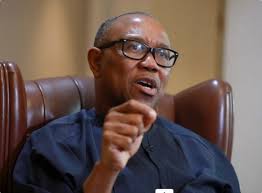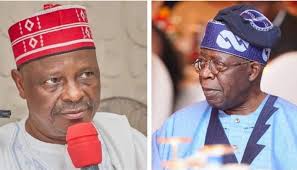
Stakeholders renew their demand for legislative independence.
The Forum for Governance, Leadership, and Values organized a one-day legislative media symposium in Abeokuta, where stakeholders denounced the legislative branch's subservient status to the executive branch of the government, arguing that this undemocratic posture is a major obstacle to good governance and the country's desired democratic growth.
The symposium's theme, "Enhancing The Value Of The Legislature In Nigeria's Democratic Process," also featured Solomon Adeola, the senator representing Ogun West, being decorated as Nigeria's Legislative Icon.
Lawal Orisadare, speaking on behalf of the Forum on Sunday, emphasized the need for a concerted effort to strengthen the legislative branch's independence, which has nearly become a beggar in the hands of the executive branch.
He explained that the theory of separation of powers, which gave birth to the three arms of government, the executive, the judiciary and the legislature, is to prevent abuse of power and promote accountability and good governance.
The lawyer, however, lamented that the legislatures have not fared so well in this regard, having been almost pocketed by the executive arm of the government.
He said that the legislature must be able to exercise the power to make laws that will address the needs of Nigerians and promote good governance.
Prof. Omotosho identified the issues facing the legislature to include political deadlock, corruption, and the influence of special interest organizations.
“The legislature’s ability to enact effective legislation can be hindered by variables including political deadlock, corruption, and the influence of special interest organizations, i.e., lobbying by influential political mafia in the state, key power brokers, and political cabals.
Because of competing interests and political battles, "the relationship between the administration and legislative can be strained, resulting to tensions that undermine effective government," Prof. Moshood noted.
Notwithstanding the difficulties, the university lecturer has urged lawmakers to uphold the legislature's vital functions in fostering good governance, stabilizing democratic government through legislation, and other areas.The law must strengthen the legislature's capacity to represent Nigerians' interests, especially those of underrepresented groups, and hold the executive branch responsible for its deeds, Orisadare continued.
"In order to effectively oversee and supervise executive activities and guarantee accountability and openness in governance, the legislatures must be reinforced."
Moshood Omotosho, a professor of international relations at Obafemi Awolowo University in Ile Ife, gave a talk on the symposium's theme. He bemoaned the fact that corruption and lobbying by influential political mafias are significant barriers to successful legislation in Nigeria's legislative branch.
Prof. Omotosho identified the issues facing the legislature to include political deadlock, corruption, and the influence of special interest organizations.
“The legislature’s ability to enact effective legislation can be hindered by variables including political deadlock, corruption, and the influence of special interest organizations, i.e., lobbying by influential political mafia in the state, key power brokers, and political cabals.
Because of competing interests and political battles, "the relationship between the administration and legislative can be strained, resulting to tensions that undermine effective government," Prof. Moshood noted.
Notwithstanding the difficulties, the university lecturer has urged lawmakers to uphold the legislature's vital functions in fostering good governance, stabilizing democratic government through legislation, and other areas.The law must strengthen the legislature's capacity to represent Nigerians' interests, especially those of underrepresented groups, and hold the executive branch responsible for its deeds, Orisadare continued.
"In order to effectively oversee and supervise executive activities and guarantee accountability and openness in governance, the legislatures must be reinforced."
Moshood Omotosho, a professor of international relations at Obafemi Awolowo University in Ile Ife, gave a talk on the symposium's theme. He bemoaned the fact that corruption and lobbying by influential political mafias are significant barriers to successful legislation in Nigeria's legislative branch.
In his submission at the event, Senator Olamilekan's representative, Morakinyo Akinleye, the Federal Commissioner of the Public Complaints Commission, characterized the Ogun West senator as a thoroughbreds lawmaker who has remained dedicated to using the tool of legislation to push the boundaries of good governance not only in Ogun State but throughout the nation.
"The legislators are grassroots representatives of the people," he stated. Yayi, as Senator Solomon Adeola affectionately called him, deserves praise for overseeing the committee's duties. He is familiar with the populace and their desires.
Additionally, Bolaji Adeniji, the symposium's organizer, revealed that the symposium's goal was to discuss how the legislature might benefit society and to advocate for lawmakers' effective representation.
"We are here today to talk about how the legislature can benefit society," Adeniji stated.
“There has been a lot of backlash against the legislature as being in cahoots with the executive, but we know that the legislatures are doing well and their roles cannot be underestimated.
“What we need to do is to support them to do the right thing for the people. We are happy that somebody like Senator Adeola Olamilekan, a key pillar of the National Assembly, is being honoured here today. Not just for his contribution to the national assembly but for the people he represents”.





